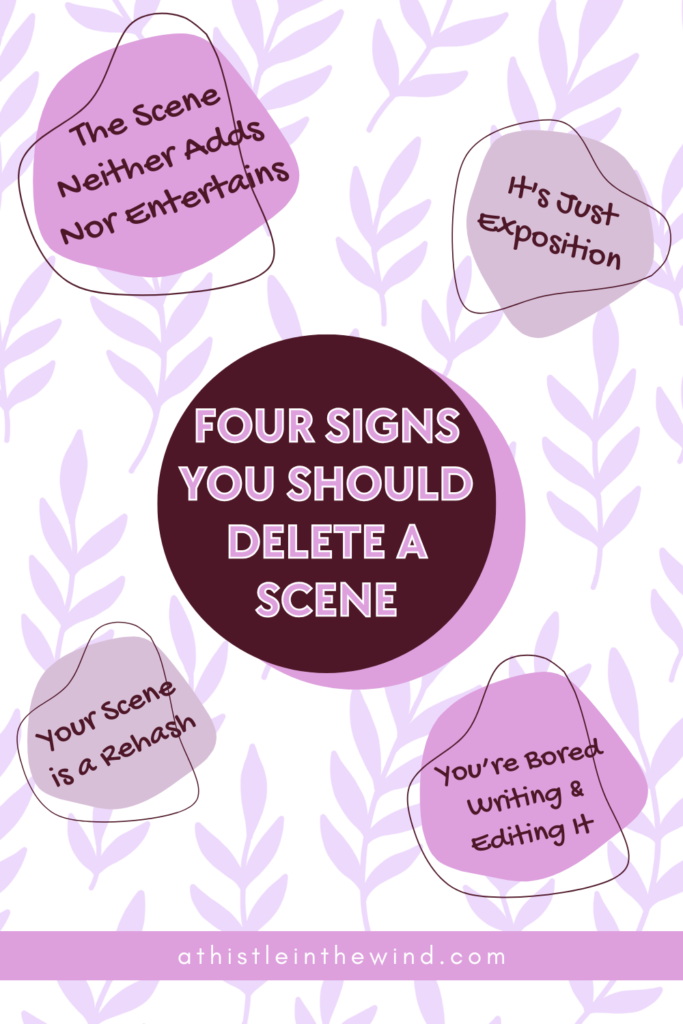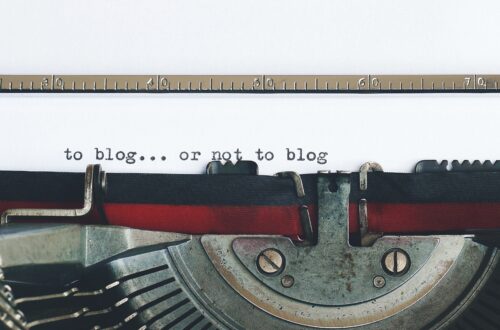4 Signs You Should Delete a Scene: A Guide for Writers
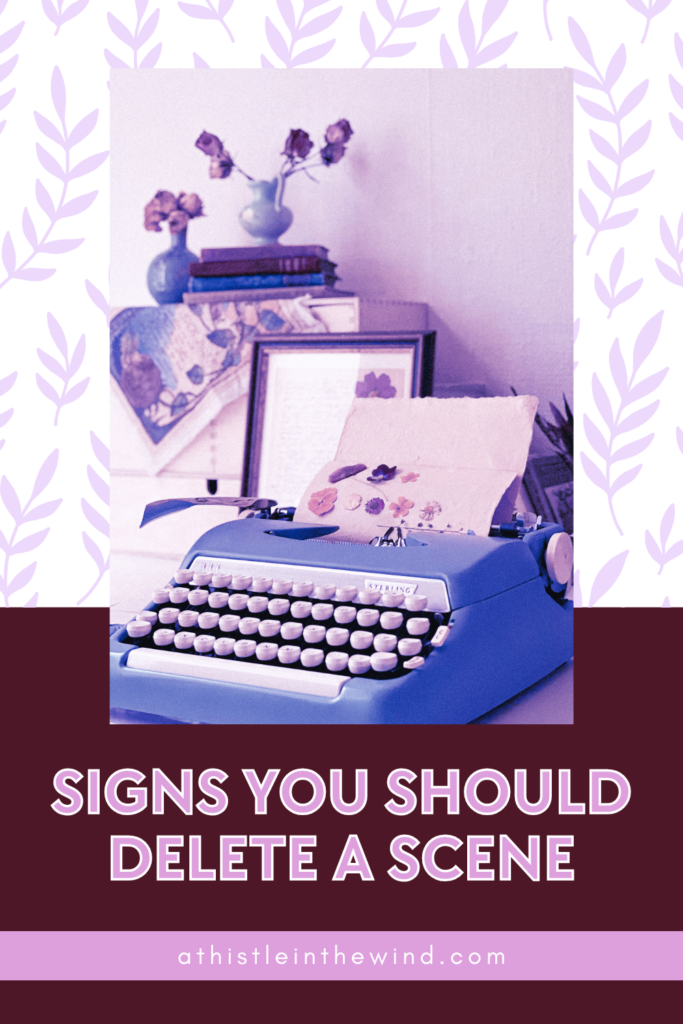
Oh yes, we’re doing this. We’re talking about something I hate: when to delete a scene. Scary, right? I KNOW.
I think it’s pretty obvious at this point that I’m deeply attached to my writing. I’m especially attached to some of the scenes I write late at night, when the rest of the world sleeps and my companions are my nightlight, and the occasional street cat meowing outside. I firmly believe my best work happens after the witching hour. Most of the stuff I’ve written that have also gotten published were written after midnight. However, as great as some scenes I write are, sometimes, they just don’t fit.
And yeah, generally, I can tell when a particular scene I’m writing doesn’t go with the narrative of my overall story, but I tend to just humour myself and see where I end up. Those kinds of scenes (and sometimes chapters) are pretty easy to spot, especially if you’re working on the first or second draft of your novel.
However, when you’re editing the final draft, and you’re considering how a particular scene affects the word count, plot, overall tone, and other factors, it can be difficult to notice. As writers, we pour our heart and soul into our stories, crafting each scene with care.
But sometimes, a scene just isn’t working. It’s like that extra bit of chocolate cake after a big meal – it was good, but you didn’t really need it, and now you just feel a bit sick.
So, how do we know when it’s time to be ruthless and hit that delete button? Well, in this blog, I’m going to break it down for you in a way that will hopefully help you understand when to delete a scene.
Sign #1: You’re Bored Writing & Editing It

Let’s start with the most fundamental sign — if you’re bored while writing and editing, delete the scene. Yes, it’s that simple. It’s like when you’re trying to explain something, but you know it’s not really going anywhere. The words feel like meh, the process feels forced, and you find yourself just trying to get through it so you can get to the “good stuff”.
Trust me, I’ve been there. I get it.
The point here is that if you’re forcing yourself to write, chances are that your readers are going to feel it too. So, if you’re bored, your readers will also be bored.
Now, the big question here is: what if the scene is truly necessary?
Well, first, ask yourself again: is it really necessary? Could the same information be delivered in a different way? Could a new scene accomplish the same result in a more interesting manner?
Maybe there’s a bit of ‘exposition-dumping’ happening (will talk about this in a moment). Sometimes, the whole scene just needs a bit of a shake-up. Can you make it funnier, or perhaps add some action, some drama perhaps?
Can you introduce a new element of tension? The possibilities are endless. You just need to be willing to experiment, even if it means rewriting something you’ve worked on for hours.
Sign #2: Your Scene is a Rehash

Another sign that you should delete a scene is if it feels repetitive. Have you said the same thing before but in a different setting? Are your characters going over the same arguments or making the same mistakes? Is someone learning the same lesson over and over again?
Situations like these can seem like watching the rerun of your favourite TV show – sure, it was great the first time, but now, do you really feel the same way?
Repetition in writing can feel like the writer doesn’t trust the reader to remember things or understand the first time something happened. If you find yourself saying the same thing twice, maybe it’s time to try something different.
Try merging similar scenes. Instead of having a fight scene and then a love declaration scene, could you weave the two together so they both propel the plot and reveal more about your characters or the story?
Merging similar scenes helps to avoid an overly repetitive and boring story.
Sign #3: It’s Just Exposition
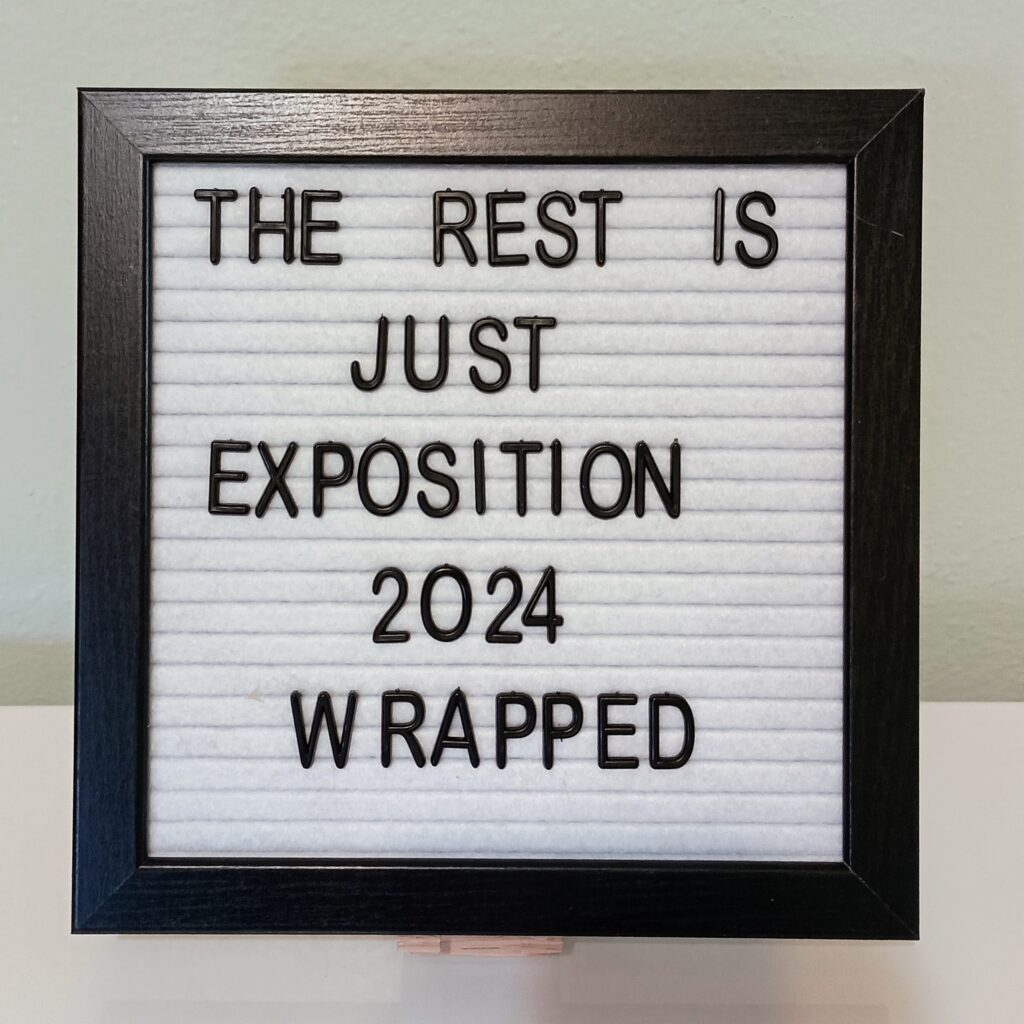
Oh, exposition. I briefly mentioned this before.
It’s the writer’s necessary evil. Sometimes, you just need to get that information across – the background, the backstory, the world-building. However, the problem comes when your scene is all exposition. This is particularly true if it’s done as a long “info-dump”.
You know what I’m talking about: a lengthy opening chapter that explains everything about the fictional kingdom of Fantasyland. The issue with exposition dumps is that they’re basically like a speedrun or an essay about the world or backstory. It’s an extremely boring way to introduce the plot or the setting to readers.
Why would you tell the reader, when you can show them what’s up?
So, yeah exposition is fine and necessary, but it should be interwoven with action and character and drama. Information should come across organically. We want to experience the story, not just have the story explained to us.
Instead of a long speech about the politics of the land, can we see that politics play out? Can we see characters arguing about it?
A key question you should ask here is, “Why should the reader care?”
Readers care about characters and the dramatic tension they are experiencing. If the scene doesn’t bring the characters to life or add to the main story, you probably don’t need it.
- For more information about how to effectively write emotions, read my blog On Writing Emotions: A Writer’s Guide to Mastering Feelings in Fiction
Sign #4: The Scene Neither Adds Nor Entertains

I’ve kind of talked about this before, but it’s important so I’m going to reiterate this point: a scene should be there for a reason. This is a general rule in writing a novel. Your scene needs to (and I apologise for the Silicon Valley jargon I’m about to use) add value to the story.
So, if parts of your novel don’t do that, it might be time to delete a scene or ten.
Ask yourself, what is the scene doing? Does it introduce a conflict, raise the stakes or reveal crucial information? If it does, great!
If not, it might be expendable. Even if it’s a fun scene to write, it has to earn its place in the final version of your book.
Also, it’s important to remember that this is a case-by-case decision. Your editor might suggest cutting scene A, but as the writer, you might disagree, and that’s totally fine.
It is not always possible to generalize these rules. And it’s your writing, and writing is subjective. My understanding of what is the peak of literary genius is 100% going to be different from yours. That’s just how it is.
This is where getting feedback from beta readers can be very helpful. A fresh pair of eyes can often help identify scenes that aren’t really contributing anything. Again, us writers, we get attached sometimes.
Bonus Tip: You Probably Don’t Need That Dream Sequence

Here’s one that some writers like, but readers don’t: the dream sequence. Now, I know dream sequences can be fun. They are a great way to get a bit weird and surreal, maybe add some symbolism. But honestly, they rarely have a direct impact on the plot. In fact, they often stop the flow of the story completely.
They can feel like a bit of a cop-out. You may want to use a dream to have a character make a sudden realisation, but if the revelation is so obvious, it can feel lazy.
Personally, I’m not a fan of dream sequences. But if it’s done right, it can be good.
But, as I’ve said before, if the dream sequence is just there to explain something, your readers will feel cheated. Instead of showing us a dream, you should just show us the important plot point directly.
There are exceptions to every rule, of course. But, generally speaking, you want to be careful about throwing in a dream sequence. If it doesn’t significantly advance the story or reveal something crucial, it’s probably time to let it go.
How to Decide Whether You Should Delete A Scene or Not: A Check
Now, we’ve covered a bunch of really important points in this blog. And I know it can still be hard to decide, so here’s a checklist that you can use.
Ask yourself these questions for every scene you have doubts about. Or in general too. They can really help you figure out whether a scene should stay or go:
- Does this scene introduce a conflict, raise the stakes, or reveal crucial information?
- Does this scene develop the characters?
- Can this scene be cut without significantly altering the story?
- Does this scene have a clear purpose?
- Is this scene bogged down by unnecessary details or exposition? Can you tighten it up?
- Does this scene raise new questions or mysteries for the reader?
- Does this scene offer a turning point for the characters or the story’s direction?
- Does this scene show the consequences of a previous decision?
- Could this scene be placed differently in the story for a stronger impact?
If you are answering “no” to many of these questions (say, over 6 out of 9), then you need to take a long, hard look at the scene.
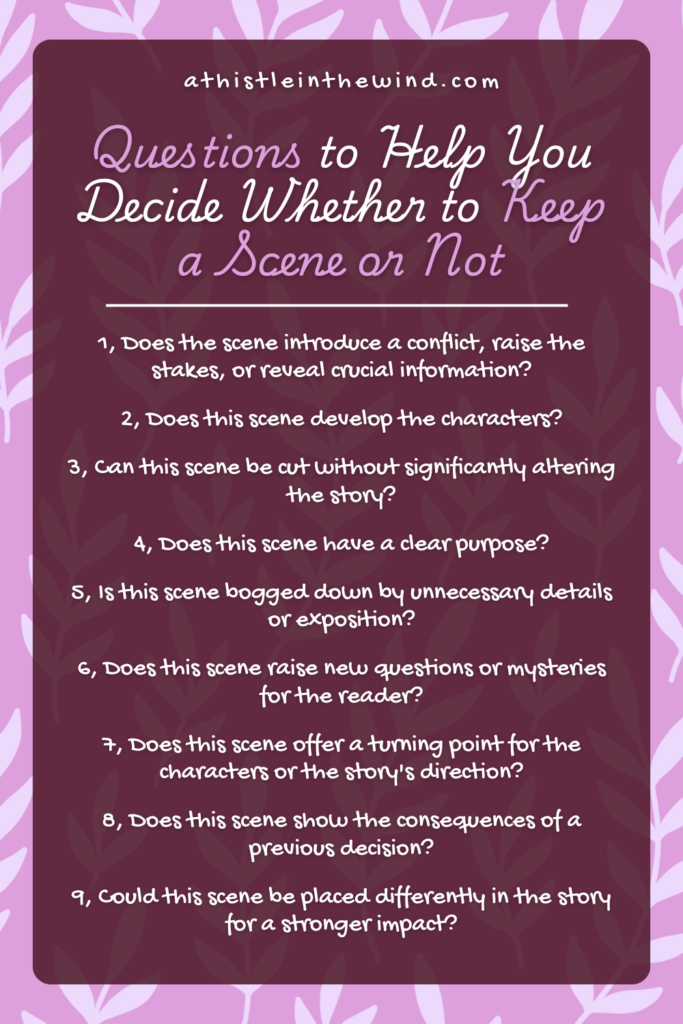
Remember: Deleting A Sign Doesn’t Make You A Failure
A lot of writers, myself included, do tend to feel like failures when our writing is rejected. And in this particular situation, you’re essentially rejecting your own writing. This can create a sense of feeling like you’re not good enough.
But I’ve got news for you: you are good enough, and writing is a form of art. Di Vinci’s painting probably wasn’t the best, but the man painted the Mona Lisa. Writing is an art form that you will get better at, the more you do it.
So, yeah, that scene you like, it didn’t make it into your final manuscript. But I’m pretty sure the scene you kept, or the scene that replaced it, is probably better. So, don’t worry!
Cutting a scene shouldn’t be seen as a sign of failure (see what I did there?). It is actually a sign that your story is becoming more streamlined and focused. It is about making your work the best it can be.
You can always save a draft of a scene that you delete. I do that. And who knows, it might even be useful in a future story.
So, I hope this blog was helpful. As always, let me know what you think!
